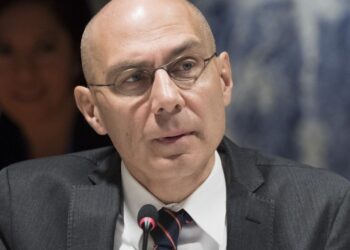Human Lives Human Rights: To suppress its opponents, dissent voices both inside and outside of the country, Saudi Arabia has been using travel bans for a number of years now.
Rights groups say that the Saudi authorities are using arbitrary travel bans as a tool to punish and control activists, writers and journalists by locking them inside the country and prevents the families of those living abroad from traveling.
The human rights defenders who are sentenced to prison follow unfair trials, with travel bans coming into force as soon as they complete their sentences.
Those living overseas said they have struggled emotionally as they are unable to see their families or visit their home country. They fear they will be arbitrarily arrested and detained if they return to Saudi Arabia.
The relatives of activists also face travel bans, effectively forcibly separating families.
This arbitrary use of travel bans against activists and human rights defenders reflects a bleak reality in the country, where dissenting voices continue to be ruthlessly silenced while leaders speak of progressive reform.
The activists who dared express any form of criticism or opinion not to the liking of the country’s leadership have become victims of unlawful and punitive travel bans that effectively curtail their freedom of movement, impacting major decisions in their lives.
The Rights groups call upon the Saudi Arabian authorities to lift all arbitrary travel bans, stop this vindictive practice and start respecting the rights to freedom of expression and movement.
Background
On 11 March 2022, Raif Badawi, a Saudi Arabian blogger and activist, was released after completing a 10-year prison sentence. But unless his travel ban is lifted, he will not be able to see his wife and children for another 10 years.
This sentence followed a grossly unfair trial, based on charges stemming solely from him establishing an online debate forum, for which he was accused of insulting Islam. Raif Badawi was also sentenced to a punishment of 1,000 lashes, the first 50 of which were meted out in a public square in Jeddah on 9 January 2015, in violation of the prohibition of torture and other ill-treatment.
Abdulrahman al-Sadhan, who worked with the International Red Crescent humanitarian network in Riyadh, was arrested on 12 March 2018 and then held incommunicado and forcibly disappeared for two years for running a satirical Twitter account.
On 5 April 2020, he was sentenced to 20 years in prison followed by a 20-year travel ban simply for exercising his right to freedom of expression. He remains in detention today, deprived of proper medical care and regular contact with his family.
Abdulrahman al-Sadhan’s sister, Areej Al-Sadhan, who lives in the United States says that travel bans deprive people of the chance to live a normal life as they disrupt people’s professional and social lives. She added that being forcibly separated from one’s family inflicts a grave psychological and emotional toll.
“They are tearing families apart. This is unjust, illegal and inhumane,” said Areej Al-Sadhan. “With a travel ban, Saudi Arabia becomes the prison, a place of punishment, a place that restricts people’s freedom and alienates citizens from their home country.”


















